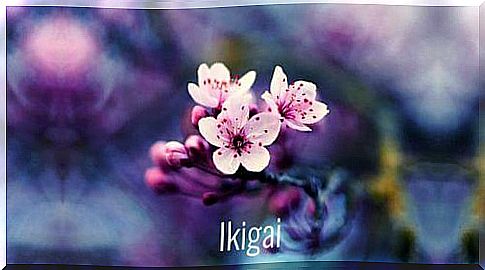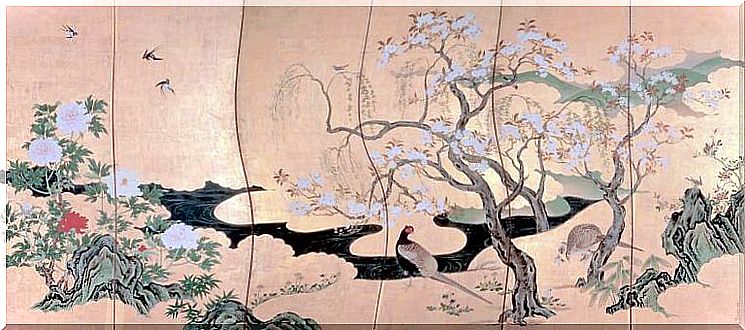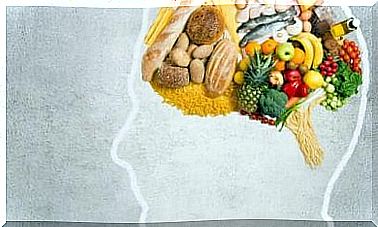7 Japanese Words That Will Facilitate Your Personal Growth. Fabulous !
Japanese culture is characterized by having terms that encompass a series of ideas that will always surprise, attract or even captivate a Westerner.

Discovering the philosophy of other cultures through their words will help us to see life in another different way and to focus more on our failures. But it will also promote personal growth.
When we focus on other languages and their words, we discover the way in which other cultures organize their world, their perception of life and even their personal universe.
Japanese culture is characterized by having terms that encompass a series of ideas that will always surprise, attract or even captivate a Westerner.
They invite us to think deeply and, above all, to incorporate certain concepts which, in themselves, are ideal for promoting change.
They also participate in personal growth, to take on new perspectives and, above all, to enrich us culturally and psychologically.
Today we invite you to discover them. We’re sure it will be as interesting as it is fun.
-
Ikigai , our motivation to exist
In order to promote our personal growth, we should all have our own ikigai . A motivation, a goal, an illusion or a vital goal that will give us strength and energy every day to start the day.
- For the Japanese, it is important that each person has their ikigai, this motivation to exist.
However, as we already know, not everyone has discovered it yet. Indeed, we often go through periods when we are lost, without direction to follow and a motivation that leads us to real and tangible happiness.
An interesting concept we should be thinking about.
2. Kintsukuroi , mend our wounds with gold

The philosophy of kintsukuroi is very strongly linked to resilience, thanks to this delicate and precise art by which we manage to repair our wounds to rise up as stronger, more worthy, more beautiful beings.
- In Japanese culture, kintsukuroi refers to a technique that aims to repair broken pieces of porcelain.
- Before throwing them away, the artists bring these pieces together using a paste that contains gold powder.
- The cracks remain visible, as these veins show strength and the unique purpose that tells its own story.
3. Aware , or the sadness of transience
Life goes by quickly, it waits for no one, it is fleeting, intense and sometimes relentless. Loves sometimes end, friendships fade, which seemed certain to us at one point ends, and forces us to start from scratch.
With it is transmitted this sadness in the face of the fleetingness of things but also the need to continue moving forward, closing stages to start new ones.
4. Majime , the person who knows how to be responsible
In Japanese, “majime” literally means serious person.
However, more than the classic profile that is not very spontaneous, closed and of imposing or gruff appearance, it refers above all to a reliable character.
This is someone we can lean on, because they are very responsible people, who do not judge and do not dramatize anything or anyone.
5. Nankurunaisa , one of the prettiest words
Nankurunaisa is, without a doubt, one of the prettiest words in ancient Japanese.
He refers to this idea so classic in motivational psychology, personal growth and even spirituality where we are asked to have confidence in the future.
We have all been through those times when, in the midst of adversity, the only option left is to have confidence.
Thus, we must understand that the passage of time, in addition to our will to act and our courage, will allow everything to be settled, for everything to heal and for the opportunities that we are waiting for to arrive again in our horizon.
6. Gaman , endure difficulties with dignity
Gaman is one of the other terms directly related to the roots of Buddhism and which gives us a delicious philosophy in which we can reflect to see life in another way.
This word actually takes up several ideas:
- Self-monitoring capacity.
- Need to be patient.
- Resistance to endure these hard and complex periods.
- Need for resilience, to bring together strength and dignity.
- Ability to go beyond and try to do something everyday to make ourselves feel a little better.
In addition, “gaman” incorporates an equally important and valuable idea: not to neglect others.
We should not be a burden or inconvenience, but elevate ourselves as understanding people who, even with problems, manage to take care of those around them. This is important in the context of personal growth.
7. Wabi-sabi , the beauty of imperfection

Wabi-sabi is another equally interesting term which mainly concerns aesthetics, art and nature. However, we can apply it to our personal reality and to everyday psychology without problems.
- It refers to the beauty that exists in those things which on the surface seem imperfect. Moreover, it conveys to us the idea that what is truly beautiful is what is simpler. And therefore more basic and pure, no matter the small flaws or imperfections.
- We can apply something like this to our daily life. In particular to correct this obsession so frequent to idealize beauty. In order to stop looking for perfection in our lives, in our bodies and even in our relationships.
For our personal growth, let’s accept that we are fallible and imperfect beings. Let’s learn how to apply these simple but interesting ideas from Japanese culture in our daily life.









